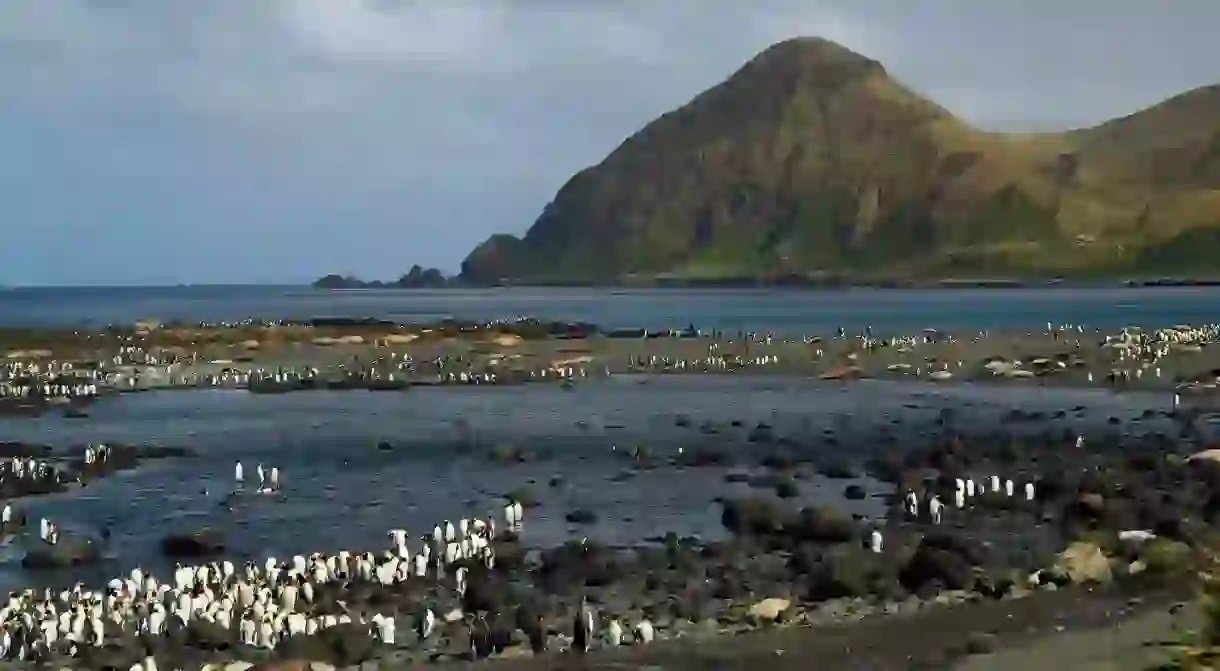Welcome to the Most Remote Islands in the World

An island can be the perfect place to clear your head, providing a much needed refuge from the hustle and bustle of modern city living. Yet most of the islands on this list are so remote that they attract very few tourists. Although some boast gentle waves and pristine sands, others are far more icy and inhospitable. From lush, tropical Niue to freezing Bouvet, here are the most remote islands in the world.
Did you know – Culture Trip now does bookable, small-group trips? Pick from authentic, immersive Epic Trips, compact and action-packed Mini Trips and sparkling, expansive Sailing Trips.
Pitcairn Island

With a population of no more than 50, Pitcairn Island is the most remote island in the world, located 3,240 miles (5,215 km) from the coast of New Zealand. The island is inhabited by the descendants of sailors from the HMS Bounty, a Royal Navy vessel that was the scene of a mutiny in 1789. In 2004, the island drew international attention when several of its inhabitants were charged with sexual offences.
Easter Island

Easter Island is located 2,182 miles (3,522 km) from mainland Chile. The island is most famous for the 887 ancient stone statues built by the original Polynesian inhabitants.
The Kerguelen Islands

The Kerguelen Islands in the middle of the South Indian Ocean are 2,050 miles (3299 km) from the coast of Madagascar and are known collectively as the “Desolation Islands.” Owned by France, the islands have a population of between 45 and 110 researcher inhabitants.
Amsterdam Island

With a population of just 25, Amsterdam Island is administered by France and is situated more than 2,500 miles (4,000 km) away from mainland Africa.
The Keeling Islands

The lush, tropical Keeling Islands (also known as the Cocos) are owned by Australia but are actually closer to Indonesia. The population numbers less than 600, but with pristine beaches and warm azure waters, the islands have a lot more going for them than some of the other entries on this list.
Niue

This tiny island country in the South Pacific Ocean is located 1,500 miles (2,415 km) east of New Zealand. While the island is an associated state of New Zealand, it is also an independent country with its own flag and government. The predominantly Polynesian population of 1,600 inhabitants enjoy some unique advantages, including state-funded wireless internet and free laptops for all school students.
Tristan da Cunha

This British overseas territory has a population of around 260. The island’s main village, Edinburgh of the Seven Seas, lays claim to the title of the most remote permanent settlement on Earth. With no airport or airstrip, the island can only be reached by boat.
Bouvet Island
This Norwegian territory in the South Atlantic is uninhabited except for occasional research expeditions. Effectively a block of ice in the middle of the ocean, the island is more than 1,000 miles (1,600 km) away from the nearest land mass in Antarctica.
Macquarie Island

Situated more than 600 miles (965 km) from the coast of New Zealand, Macquarie Island has been declared a World Heritage Site by UNESCO owing to its extraordinary wildlife. While there are typically no more than 40 people living there at any time, the island supports about 3.5 million breeding seabirds, including nearly a million penguins.
Raoul Island

This uninhabited island is located more than 670 miles (1080 km) north of New Zealand. Rocky cliffs ring the volcanic island, but its center is marked by lush palm forests.
Floreana Island

Forming part of the Galapagos Islands archipelago, Floreana Island is located more than 600 miles (966 km) from mainland Ecuador. The volcanic island has a population of around 100 inhabitants and is a popular dive and snorkelling destination.













